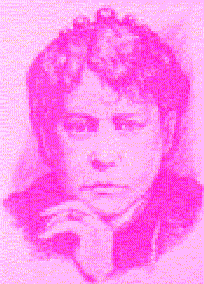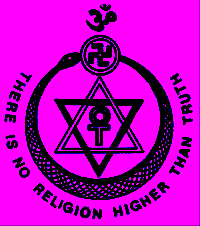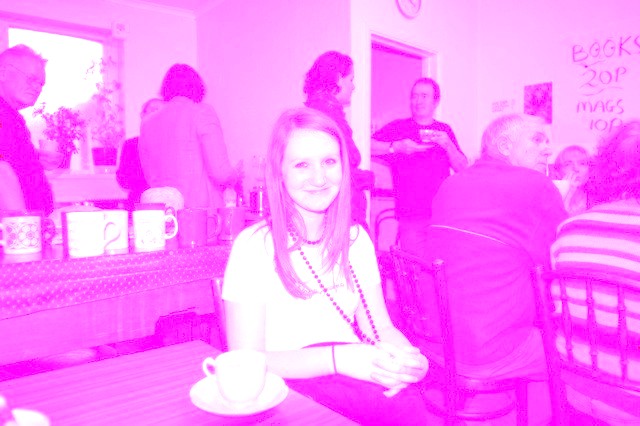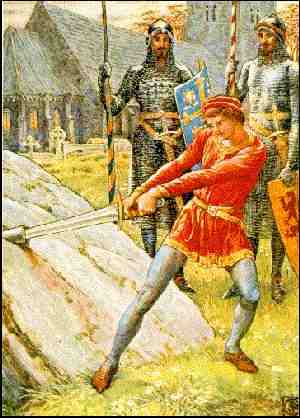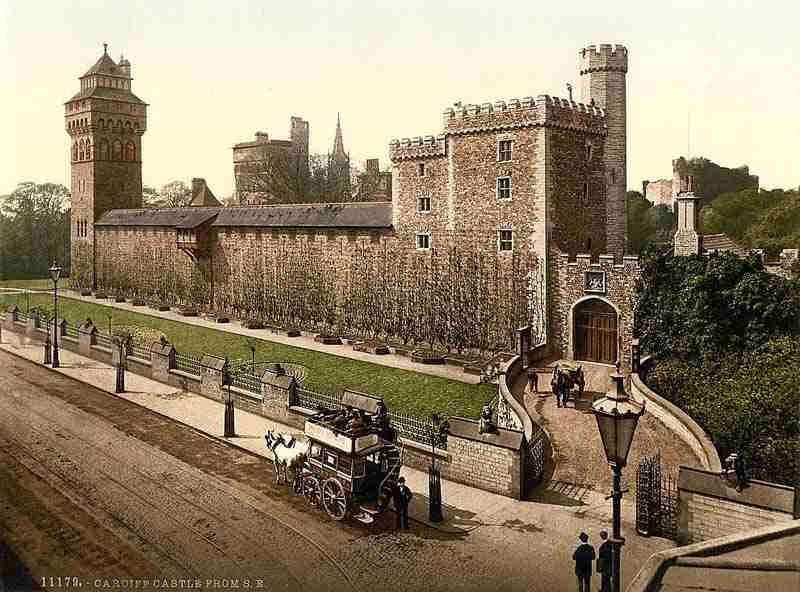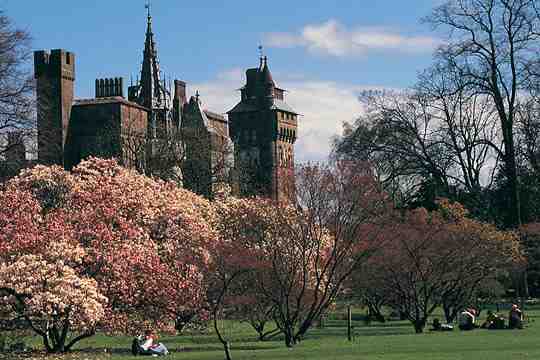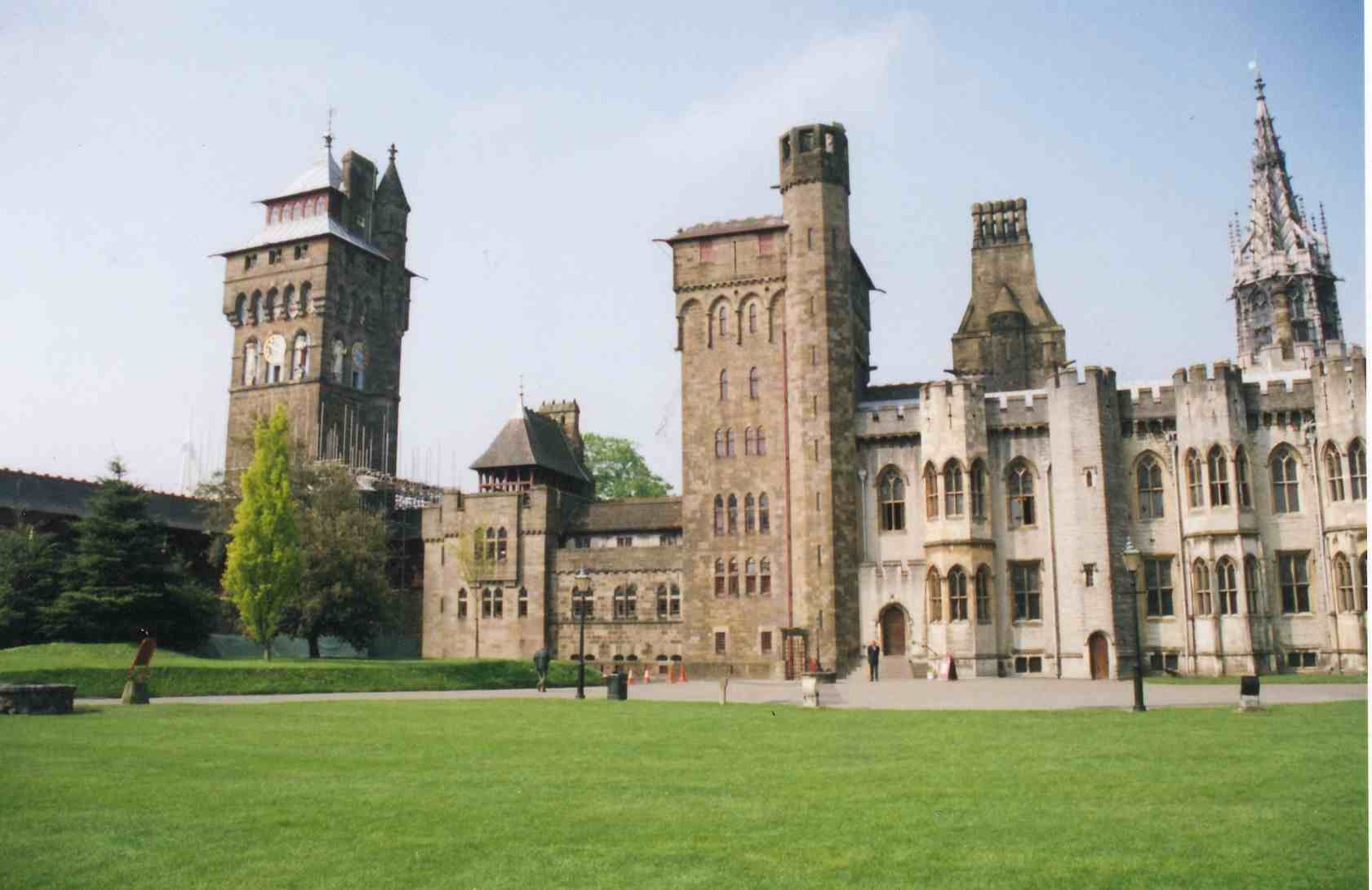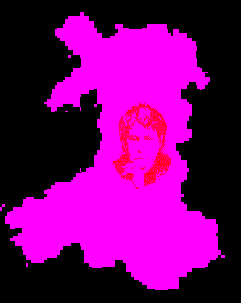
The All
Getting Started in
Theosophy
(And it’s all Free Stuff )
But you don’t have to live in Wales
to find this guide useful
Helena Petrovna Blavatsky
1831 – 1891
____________________
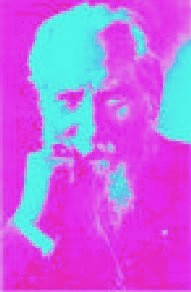
Reincarnation
From
A Textbook of Theosophy
By
C
This life
of the ego in his own world, which is so glorious and so fully satisfying for
the developed man, plays but a very small part in the life of the ordinary
person, for in his case the ego has not yet reached a sufficient stage of
development to be awake in his causal body. In obedience to the law of nature
he has withdrawn into it, but in doing so he has lost the sensation of vivid
life, and restless desire to feel this once more pushes him in the direction of
another descent into matter.
This is
the scheme of evolution appointed for man at the present stage – that he shall
develop by descending into grosser matter, and then ascend to carry back into
himself the result of the experiences so obtained. His real life, therefore,
covers millions of years, and what we are in the habit of calling a life is
only one day of this greater existence. Indeed, it is in reality only a small
part of one day; for a life of seventy years in the physical world is often
succeeded by a period of twenty times that length spent in higher spheres.
Every one
of us has a long line of these physical lives behind him, and the ordinary man
has a fairly long line still in front of him. Each of such lives is a day at
school. The ego puts upon himself his garment of flesh and goes forth into the
school of the physical world to learn certain lessons. He learns them, or does
not learn them, or partially learns them, as the case may be, during his school
day of earth life; then he lays aside the vesture of the flesh and returns home
to his own level for rest and refreshment. In the morning of each new life he
takes up again his lesson at the point where he left it the night before. Some
lessons he may be able to learn in one day, while others may take him many
days.
If he is
an apt pupil and learns quickly what is needed, if he obtains an intelligent
grasp of the rules of the school, and takes the trouble to adapt his conduct to
them, his school life is comparatively short, and when it is over he goes forth
fully equipped into the real life of the higher worlds for which all this is
only a preparation. Other egos are duller boys who do not learn so quickly;
some of them do not understand the rules of the school, and through that
ignorance are constantly breaking them; others are wayward, and even when they
see the rules they cannot at once bring themselves to act in harmony with them.
All of these have a longer school life, and by their own actions they delay
their entry upon the real life of the higher worlds.
For this
is a school in which no pupil ever fails; every one must go on to theend. He
has no choice as to that; but the length of time which he will take in
qualifying himself for the higher examinations is left entirely to his
owndiscretion. The wise pupil, seeing that school life is not a thing in
itself, but only a preparation for a more glorious and far wider life, endeavors
to comprehend as fully as possible the rules of his school, and shapes his life
in accordance with them as closely as he can, so that no time may be lost in
the learning of whatever lessons are necessary. He co-operates intelligently
with the Teachers, and sets himself to do the maximum of work which is possible
for him, in order that as soon as he can he may come of age and enter into his
kingdom as a glorified ego.
Theosophy
explains to us the laws under which this school life must be lived, and in that
way gives a great advantage to its students. The first great law is that of
evolution. Every man has to become a perfect man, to unfold to the fullest
degree the divine possibilities which lie latent within him, for that
unfoldment is the object of the entire scheme so far as he is concerned. This
law of evolution steadily presses him onward to higher and higher achievements.
The wise
man tries to anticipate its demands – to run ahead of the necessary curriculum,
for in that way he not only avoids all collision with it, but he obtains the
maximum of assistance from its action. The man who lags behind in the race of
life finds its steady pressure constantly constraining him – a pressure which,
if resisted, rapidly becomes painful. Thus the laggard on the path of evolution
has always the sense of being hunted and driven by fate, while the man who
intelligently co-operates is left perfectly free to choose the direction in
which he shall move, so long as it is onward and upward.
The second
great law under which this evolution is taking place is the law of cause and
effect. There can be no effect without its cause, and every cause must produce
its effect. They are in fact not two but one, for the effect is really part of
the cause, and he who sets one in motion
sets the other also. There is in Nature no such idea as that of reward
or punishment, but only of cause and effect. Any one can see this in connection
with mechanics or chemistry; the clairvoyant sees it equally clearly with
regard to the problems of evolution.
The same
law obtains in the higher as in the lower worlds; there, as here, the angle of
reflection is always equal to the angle of incidence. It is a law of mechanics
that action and reaction are equal and opposite. In the almost infinitely finer
matter of the higher worlds the reaction is by no means always
instantaneous;
it may sometimes be spread over long periods of time, but it returns inevitably
and exactly.
Just as
certain in its working as the mechanical law in the physical world is the
higher law, according to which the man who sends out a good thought or does a
good action receives good in return, while the man who sends out an evil
thought or does an evil action receives evil in return with equal accuracy –
once more, not in the least as a reward or punishment administered by some
external will, but simply as the definite and mechanical result of his own
activity. Man has learnt to appreciate a mechanical result in the physical
world, because the reaction is usually almost immediate and can be seen by him.
He does not invariably understand the reaction in the higher worlds because
that takes a wider sweep, and often returns not in this physical life, but in
some future one.
The action
of this law affords the explanation of a number of the problems of ordinary
life. It accounts for the different destinies imposed upon people, and also for
the differences in the people themselves. If one man is clever in a certain
direction and another is stupid, it is because in a previous life the clever
man has devoted much effort to practice in that particular direction, while the
stupid man is trying it for the first time. The genius and the precocious child
are examples not of the favoritism of some deity but of the result produced by
previous lives of application. All the varied circumstances which surround us
are the result of our own actions in the past, precisely as are the qualities
of which we find ourselves in possession. We are what we have made ourselves,
and our circumstances are such as we have deserved.
There is,
however, a certain adjustment or apportionment of these effects. Though the law
is a natural law and mechanical in its operation, there are nevertheless
certain great Angels who are concerned with its administration.
They
cannot change by one feather weight the amount of the result which follows upon
any given thought or act, but they can within certain limits expedite or delay
its action, and decide what form it shall take.
If this
were not done there would be at least a possibility that in his earlier stages
the man might blunder so seriously that the results of his blundering might be
more than he could bear. The plan of the Deity is to give man a limited amount
of freewill; if he uses that small amount well, he earns the right to a little
more next time; if he used it badly, suffering comes upon him as the result of
such evil use, and he finds himself restrained by the result of his previous
actions. As the man learns how to use his free will, more and more of it is entrusted
to him, so that he can acquire for himself practically unbounded freedom in the
direction of good, but his power to do wrong is strictly restricted. He can
progress as rapidly as he will, but he cannot wreck his life in his ignorance.
In the earlier stages of the savage life of primitive man it is natural that
there should be on the whole more of evil than of good, and if the entire
result of his actions came at once upon a man as yet so little developed, it
might well crush the newly evolved powers which are still so feeble.
Besides
this, the effects of his actions are varied in character. While some of them
produce immediate results, others need much more time for their action, and so
it comes to pass that as the man develops he has above him a hovering cloud of
undischarged results, some of them good, some of them bad. Out of this mass
(which we may regard for the purposes of analogy much as though it were a debt
owing to the powers of nature) a certain amount falls due in each of his
successive births; and that amount, so assigned, may be thought of as the man’s
destiny for that particular life.
All that
it means is that a certain amount of joy and a certain amount of suffering are
due to him, and will unavoidably happen to him; how he will meet this destiny
and what use he will make of it, that is left entirely to his own option. It is
a certain amount of force which has to work itself out. Nothing can prevent the
action of that force, but its action may always be modified by the application
of a new force in another direction, just as is the case in mechanics. The
result of past evil is like any other debt; it may be paid in one large check
upon the bank of life – by some one supreme catastrophe; or it may be paid in a
number of smaller notes, in minor troubles and worries; in some cases it may
even be paid in the small change of a vast number of petty annoyances. But one
thing is quite certain – that, in some form or other, paid it will have to be.
The
conditions of our present life, then, are absolutely the result of our own
action in the past; and the other side of that statement is that our actions in
this life are building up conditions for the next one.
A man who
finds himself limited either in powers or in outer circumstances may not always
be able to make himself or his conditions all that he would wish in this life;
but he can certainly secure for the next one whatever he chooses.
Man’s
every action ends not with himself, but invariably affects others around him.
In some cases this effect may be comparatively trivial, while in others it may
be of the most serious character. The trivial results, whether good or bad are
simply small debits or credits in our account with Nature; but the greater
effects, whether good or bad, make a personal account which is to be settled
with the individual concerned.
A man who
gives a meal to a hungry beggar, or cheers him by a kindly word, will receive
the result of his good action as part of a kind of general fund of Nature’s
benefits; but one who by some good action changes the whole current of another
man’s life will assuredly have to meet that same man again in a future life, in
order that he who has been benefited may have the opportunity of repaying the
kindness that has been done to him.
One who
causes annoyance to another will suffer proportionately for it somewhere,
somehow, in the future, though he may never meet again the man whom he has
troubled; but one who does serious harm to another, one who wrecks his life or
retards his evolution, must certainly meet his victim again at some later point
in the course of their lives, so that he may have the opportunity, by kindly
and self-sacrificing service, of counterbalancing the wrong which he has done.
In short, large debts must be paid personally, but small ones go into the
general fund.
In every
nation there exist an almost infinite number of diverse conditions, riches and
poverty, a wide field of opportunities or a total lack of them, facilities for
development or conditions under which development is difficult or well-nigh
impossible. Amidst all these infinite possibilities the pressure of the law of
evolution tends to guide the man to precisely those which best suit his needs
at the stage at which he happens to
be.
But the
action of this law is limited by that other law of which we spoke, the law of
cause and effect. The man’s actions in the past may not have been such as to
deserve (if we may put it so) the best possible opportunities; he may have set
in motion in his past certain forces the inevitable result of which will be to
produce limitations; and these limitations may operate to prevent his receiving
that best possible of opportunities, and so as the result of his own actions in
the past he may have to put up with the second-best. So we may say that the
action of the law of evolution, which if left to itself would do the very best
possible for every man, is restrained by the man’s own previous actions.
An
important feature in that limitation – one which may act most powerfully for
good or for evil – is the influence of the group of egos with which the man has
made definite links in the past – those with whom he has formed strong ties of
love or hate, of helping or of injury – those souls whom he must meet again
because of connections made with them in days of long ago. His relation with
them is a factor which must be taken into consideration before it can be
determined where and how he shall be reborn.
The will
of the Deity is man’s evolution. The effort of that nature which is an
expression of the Deity is to give the man whatever is most suitable for that
evolution; but this is conditioned by the man’s deserts in the past and by the
links which he has already formed. It may be assumed that a man descending into
incarnation could learn the lessons necessary for that life in any one of a
hundred positions. From half of these or more than half he may be debarred by
the consequences of some of his many and varied actions in the past.
Among the few
possibilities which remain open to him, the choice of one possibility in
particular may be determined by the presence in that family or in that
neighborhood of other egos upon whom he has a claim for services rendered, or
to whom he in his turn owes a debt of love.
______________________
The All Wales
Guide to
Getting Started in
Theosophy
_______________________
Find out more about
Theosophy with these links
Cardiff Theosophical Society meetings
are informal
and there’s always a cup of tea afterwards
The
Cardiff Theosophical Society Website
The
National Wales Theosophy Website
Theosophy Cardiff’s Instant Guide
One liners and quick explanations
H P
Blavatsky is usually the only
Theosophist
that most people have ever
heard
of. Let’s put that right
The Voice of the Silence Website
Dave’s Streetwise Theosophy Boards
If you run a
Theosophy Study Group,
please feel free
to use any material on this site
If you run a Theosophy
Group you can use
this as an
introductory handout
It’s all “water
under the bridge” but everything you do
makes an imprint
on the Space-Time Continuum.
An
Independent Theosophical Republic
Links
to Free Online Theosophy
Study
Resources; Courses, Writings,
The main criteria
for the inclusion of
links on this
site is that they have some
relationship
(however tenuous) to Theosophy
and are
lightweight, amusing or entertaining.
Topics include
Quantum Theory and Socks,
Dick Dastardly and Legendary Blues Singers.
Lentil burgers, a
thousand press ups before breakfast and
the daily 25 mile
run may put it off for a while but death
seems to get most
of us in the end. We are pleased to
present for your
consideration, a definitive work on the
subject by a
Student of Katherine Tingley entitled
This is for
everyone, you don’t have to live
in Wales to
make good use of this Website
The
Seven Principles of Man
By
Annie
Besant
No
Aardvarks were harmed in the
The Spiritual Home of Urban Theosophy
The Earth Base for Evolutionary Theosophy
Reincarnation
This guide has been included in response
to the number of enquiries we receive on
this
subject at Cardiff Theosophical Society
From A Textbook
of Theosophy By C W Leadbeater
How We Remember our Past Lives
Life after Death & Reincarnation
The Slaughter of the Battle of the Somme
1916 leads to
a great demand by the public for
lectures on Reincarnation
Classic Introductory Theosophy Text
A Text Book of Theosophy By C
What Theosophy Is From the Absolute to Man
The Formation of a Solar System The Evolution of Life
The Constitution of Man After Death
Reincarnation
The Purpose of Life The Planetary Chains
The Result of Theosophical Study
The Occult World
By
Alfred Percy Sinnett
The
Occult World is an treatise on the
Occult
and Occult Phenomena, presented
in readable style, by an early giant of
the
Theosophical Movement.
Preface to the American Edition Introduction
Occultism and its Adepts The Theosophical Society
First Occult Experiences Teachings of Occult Philosophy
Later Occult Phenomena Appendix
by
Annie Besant
THE PHYSICAL PLANE THE ASTRAL PLANE
KÂMALOKA THE MENTAL PLANE DEVACHAN
THE BUDDHIC AND NIRVANIC PLANES
THE THREE KINDS OF KARMA COLLECTIVE KARMA
THE LAW OF SACRIFICE MAN'S
ASCENT
______________________
Annie Besant Visits Cardiff 1924
National Wales Centre for Theosophy
Blavatsky Wales Theosophy Group
Selection of H P Blavatsky’s Writings
Theosophy Birmingham (England)
The Birmingham Annie Besant Lodge
Quotes
from the Writings of
Helena
Petrovna Blavatsky
The Secret Doctrine , Volume 2, Page 100
It is only by the
attractive force of the contrasts that the two opposites — Spirit and Matter — can be cemented
together on Earth, and, smelted in the fire of self-conscious experience and suffering, find
themselves wedded in Eternity.
The Secret Doctrine , Volume 2, Page 108
It is the motive, and
the motive alone, which makes any exercise of power become black, malignant, or white,
beneficent Magic. It is impossible to employ spiritual forces if there is the
slightest tinge of selfishness remaining in the operator .... The powers and
forces of animal nature can equally be used by the selfish and revengeful, as
by the unselfish and the all-forgiving; the powers and forces of spirit lend
themselves only to the perfectly pure in heart — and this is Divine Magic.
Isis Unveiled, Volume
1, Page 36
The Secret Doctrine , Volume 3, Page 14
Even ignorance is better than
Head-learning with no Soul-wisdom to illuminate and guide it.
The Voice of the Silence, Page 43
Tekels Park
to be Sold to a Developer
Concerns about the fate of the wildlife as
Tekels Park is to be Sold to a Developer
Concerns are raised about the fate of the wildlife as
The Spiritual Retreat, Tekels Park in Camberley,
Surrey, England is to be sold to a developer.
Tekels Park is a 50 acre woodland
park, purchased
for the Adyar Theosophical Society in England
in 1929.
In addition to concern about the
park, many are
worried about the future of the Tekels Park
Deer
as they are not a protected species.
Confusion as the Theoversity moves out of
Tekels Park to Southampton, Glastonbury &
Chorley in Lancashire while the leadership claim
that the Theosophical Society will carry on
using
Tekels Park despite its sale to a developer
Anyone planning a “Spiritual” stay at
the
Tekels Park Guest House should be
aware of the sale.
Tekels Park & the Loch Ness Monster
A Satirical view
of the sale of Tekels Park
in Camberley,
Surrey to a developer
The Toff’s Guide to the Sale of Tekels Park
What the men in
top hats have to
say about the
sale of Tekels Park
________________________
The Theosophy Cardiff
Glastonbury Pages
The Theosophy Cardiff Guide to
The Theosophy Cardiff Guide to
The Theosophy Cardiff Guide to
The Terraced Maze of Glastonbury Tor
Glastonbury and
Joseph of Arimathea
The Grave of King Arthur & Guinevere
Views of Glastonbury High Street
The Theosophy Cardiff Guide to
Guide to the
Theosophy Wales King Arthur Pages
Arthur draws
the Sword from the Stone
The Knights of The Round Table
The Roman Amphitheatre at Caerleon,
Eamont Bridge, Nr Penrith, Cumbria, England.
Geoffrey of Monmouth
(History of the Kings of Britain)
The reliabilty of this work has long been a subject of
debate but it is the first definitive account of Arthur’s
Reign
and one which puts Arthur in a historcal context.
and his version’s political agenda
According to Geoffrey of Monmouth
The first written mention of Arthur as a heroic figure
The British leader who fought twelve battles
King Arthur’s ninth victory at
The Battle of the City of the Legion
King Arthur ambushes an advancing Saxon
army then defeats them at Liddington Castle,
Badbury, Near Swindon, Wiltshire, England.
King Arthur’s twelfth and last victory against the Saxons
Traditionally Arthur’s last battle in which he was
mortally wounded although his side went on to win
No contemporary writings or accounts of his life
but he is placed 50 to 100 years after the accepted
King Arthur period. He refers to Arthur in his inspiring
poems but the earliest written record of these dates
from over three hundred years after Taliesin’s death.
Pendragon Castle
Mallerstang Valley, Nr Kirkby Stephen,
A 12th Century Norman ruin on the site of what is
reputed to have been a stronghold of Uther Pendragon
From wise child with no
earthly father to
Megastar of Arthurian
Legend
History of the Kings of Britain
Drawn from the Stone or received from the Lady of the Lake.
Sir Thomas Malory’s Le Morte d’Arthur has both versions
with both swords called Excalibur. Other versions
5th & 6th Century Timeline of Britain
From the departure of the Romans from
Britain to the establishment of sizeable
Anglo-Saxon Kingdoms
Glossary of
Arthur’s uncle:- The puppet ruler of the Britons
controlled and eventually killed by Vortigern
Amesbury, Wiltshire, England. Circa 450CE
An alleged massacre of Celtic Nobility by the Saxons
History of the Kings of Britain
Athrwys / Arthrwys
King of Ergyng
Circa 618 - 655 CE
Latin: Artorius; English: Arthur
A warrior King born in Gwent and associated with
Caerleon, a possible Camelot. Although over 100 years
later that the accepted Arthur period, the exploits of
Athrwys may have contributed to the King Arthur Legend.
He became King of Ergyng, a kingdom between
Gwent and Brycheiniog (Brecon)
Angles under Ida seized the Celtic Kingdom of
Bernaccia in North East England in 547 CE forcing
Although much later than the accepted King Arthur
period, the events of Morgan Bulc’s 50 year campaign
to regain his kingdom may have contributed to
Old Welsh: Guorthigirn;
Anglo-Saxon: Wyrtgeorn;
Breton: Gurthiern; Modern Welsh; Gwrtheyrn;
*********************************
An earlier ruler than King Arthur and not a heroic figure.
He is credited with policies that weakened Celtic Britain
to a point from which it never recovered.
Although there are no contemporary accounts of
his rule, there is more written evidence for his
existence than of King Arthur.
How Sir Lancelot slew two giants,
From Sir Thomas Malory’s Le Morte d’Arthur
How Sir Lancelot rode disguised
in Sir Kay's harness, and how he
From Sir Thomas Malory’s Le Morte d’Arthur
How Sir Lancelot jousted against
four knights of the Round Table,
From Sir Thomas Malory’s Le Morte d’Arthur
Quick Explanations with Links to More Detailed Info
What is Theosophy ? Theosophy Defined (More Detail)
Three Fundamental Propositions Key Concepts of Theosophy
Cosmogenesis Anthropogenesis Root Races
Ascended Masters After Death States
The Seven Principles of Man Karma
Reincarnation Helena Petrovna Blavatsky
Colonel Henry Steel Olcott William Quan Judge
The Start of the Theosophical
Society
History of the Theosophical Society
Theosophical Society Presidents
History of the Theosophical
Society in Wales
The Three Objectives of the
Theosophical Society
Explanation of the Theosophical
Society Emblem
The Theosophical Order of
Service (TOS)
Glossaries of Theosophical Terms
Index
of Searchable
Full
Text Versions of
Definitive
Theosophical
Works
H P Blavatsky’s Secret Doctrine
Isis Unveiled by H P Blavatsky
H P Blavatsky’s Esoteric Glossary
Mahatma Letters to A P Sinnett 1 - 25
A Modern Revival of Ancient Wisdom
(Selection of Articles by H P Blavatsky)
The Secret Doctrine – Volume 3
A compilation of H P Blavatsky’s
writings published after her death
Esoteric Christianity or the Lesser Mysteries
The Early Teachings of The Masters
A Collection of Fugitive Fragments
Fundamentals of the Esoteric Philosophy
Mystical,
Philosophical, Theosophical, Historical
and Scientific
Essays Selected from "The Theosophist"
Edited by George
Robert Stow Mead
From Talks on the Path of Occultism - Vol. II
In the Twilight”
Series of Articles
The In the
Twilight” series appeared during
1898 in The
Theosophical Review and
from 1909-1913
in The Theosophist.
compiled from
information supplied by
her relatives
and friends and edited by A P Sinnett
Letters and
Talks on Theosophy and the Theosophical Life
Obras
Teosoficas En Espanol
Theosophische
Schriften Auf Deutsch
Try these if you don’t
live in Wales
and are looking for a
Local Theosophy Group or
Centre
UK Listing of Theosophical Groups
____________________________
___________________________
Cardiff Theosophical
Society in Wales
Cardiff, Wales, UK. CF24 – 1DL
_____________________________
Cardiff Picture Gallery
Cardiff
Millennium Stadium
The
Hayes Cafe
Outside Cardiff Castle
Circa 1890
Church
Street
Cardiff View
Royal
The
Original Norman Castle which stands inside
the
Grounds of the later
Inside
the Grounds at
Cardiff
Street Entertainment
Cardiff
Indoor Market
Cardiff Theosophical Society in Wales
Hey Look! Theosophy in Cardiff
